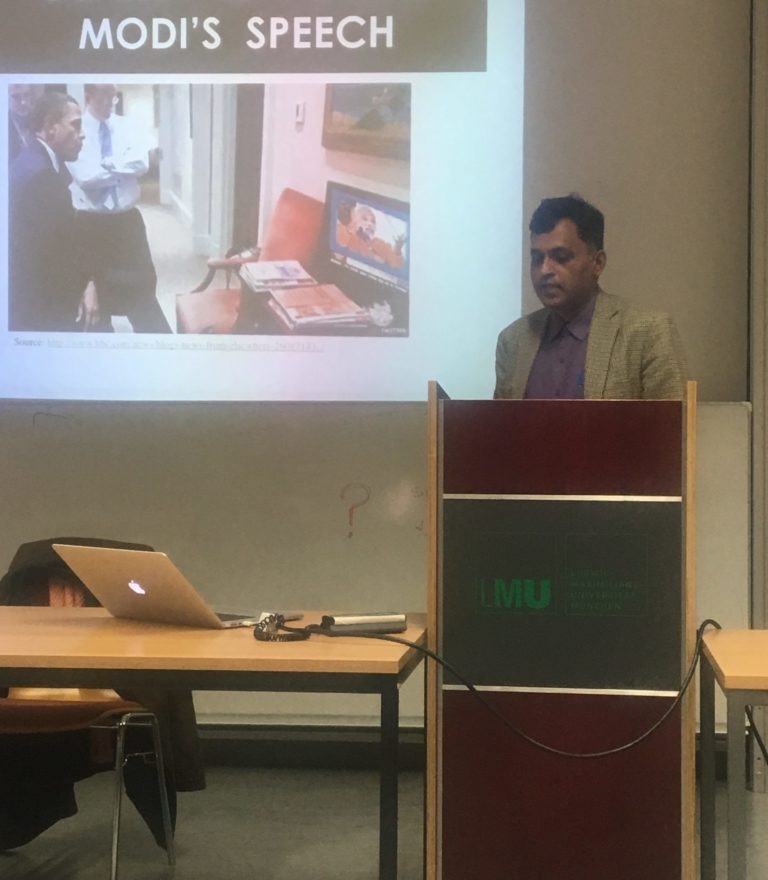Menu
DEMOCRACY AS RUMOUR: TALK BY IRFAN AHMAD
Rumor cannot be understood as a plebeian form of resistance because mainstream media work like rumor machines and serve the power elite, argued anthropologist Dr Irfan Ahmad, who is currently researching media and rumor in the Indian parliamentary elections of 2014. At the Oberseminar lecture hosted by For Digital Dignity Project ONILNERPOL at LMU this week, Dr Ahmad described how rumors are an essential part of democracy, both closely connected to media.
Disavowing the rupture between modern and premodern world, Dr Ahmad contended that what was rumor to premodern society, television and new media are largely to contemporary nation-states. This argument was made by referring to the 2014 election in India, when the notion of Hindutva was actively tied to the idea of development and spread as an unverified claim through several media outlets. This rumor indeed not only resulted in the widespread belief that Hindutva and social progress were inseparably linked but ultimately led to the major electoral success of right wing parties. Dr. Ahmad further concluded that propaganda and rumor are analytically indistinguishable and challenged the predominant view of rumor as inherently oral, pre-capitalist and anonymous. Rather, he argued, rumor is an instrumental part of our contemporary “designer democracies” where voters are viewed as consumers and parties as salesmen. Rumor, thus, can be an effective weapon in the hands of the power elites.
During the discussion, questions were raised about the inherent differences in truth claims concerning propaganda and rumor, where the former establishes an aura of indisputable facticity and the latter tends to leave open the question of veracity. In addition, a dangerous closeness to the reasoning of the current American president was pointed out, who would subscribe to the idea that mainstream media is a reproduction machine of (mere) rumors.
Dr. Irfan Ahmad is a Senior Research Fellow at the Max Planck Institute for the Study of Religious and Ethnic Diversity, Goettingen, and the author, most recently, of Religion as Critique: Islamic Critical Thinking from Mecca to the Marketplace (University of North Carolina Press, 2017 and Oxford University Press, New Delhi), and co-editor of (Il)liberal Europe: Islamophobia, Modernity and Radicalization (Routledge, 2017). Previously an Associate Professor of Political Anthropology at ACU, Melbourne, he is the founding co-editor of Journal of Religious and Political Practice (Taylor & Francis). Dr. Irfan Ahmad is also a collaborator with For Digital Dignity.
